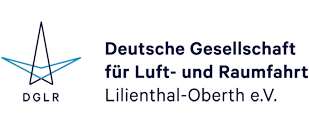DGLR-Publikationsdatenbank - Detailansicht
Autor(en):
J. Parekh, P. Bekemeyer, S. Helm, D.G. François, C. Grabe
Zusammenfassung:
The development of energy-efficient aircraft is crucial for achieving sustainable, zero-emission air travel. Achieving sustainability in aviation necessitates strategies to reduce fuel consumption, including the implementation of low-drag wing designs and harnessing laminar flow. However, designing laminar aircraft requires intricate methodologies due to sensitivity to environmental and operational variations. This study addresses the challenge of designing energy-efficient aircraft by employing computational fluid dynamics models and advanced optimization under uncertainty techniques. We show the successful application of the surrogate-based optimization and uncertainty quantification approach in the optimization of airfoil drag enabling a natural laminar airfoil (NLF) design. The optimization process employs surrogate models trained using the data from high-fidelity airfoil simulations using - (i) a boundary layer code coupled with linear stability method, and (ii) a recently developed transition transport model. Accuracy of the surrogate models is improved using an active sampling strategy. The robust optimization approach accounts for uncertainties in environmental and operational conditions, providing a more comprehensive understanding of their impact on key design parameters. Contrary to conventional deterministic aerodynamic design optimization, our results demonstrate the effectiveness and accuracy of optimization under uncertainty for achieving robust NLF airfoil designs. The robust optimums favor a delayed transition location w.r.t. the instabilities, unlike their deterministic counterparts that feature sudden transitions triggering fully turbulent flow. This study advances the field by offering a practical and reliable methodology for developing energy-efficient airfoil. The application of these advanced optimization techniques and uncertainty quantification methods holds significant promise for the broader field of aerospace engineering, offering a pathway towards more robust designs.
Veranstaltung:
Deutscher Luft- und Raumfahrtkongress 2023, Stuttgart
Verlag, Ort:
Deutsche Gesellschaft für Luft- und Raumfahrt - Lilienthal-Oberth e.V., Bonn, 2023
Medientyp:
Conference Paper
Sprache:
englisch
Format:
21,0 x 29,7 cm, 14 Seiten
URN:
urn:nbn:de:101:1-2023112212315074696577
DOI:
10.25967/610225
Stichworte zum Inhalt:
Robust Design Optimization, Surrogate Based Uncertainty Quantification, Laminarization, Transition Modeling
Verfügbarkeit:
Download
- Bitte beachten Sie die Nutzungsbedingungen dieses Dokuments: Copyright protected
Kommentar:
Zitierform:
Parekh, J.; Bekemeyer, P.; et al. (2023): Laminar Airfoil Design under Uncertainties using the DLR Gamma Transition Model. Deutsche Gesellschaft für Luft- und Raumfahrt - Lilienthal-Oberth e.V.. (Text). https://doi.org/10.25967/610225. urn:nbn:de:101:1-2023112212315074696577.
Veröffentlicht am:
22.11.2023
